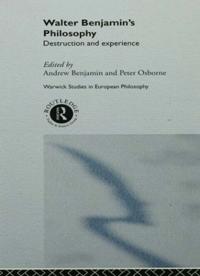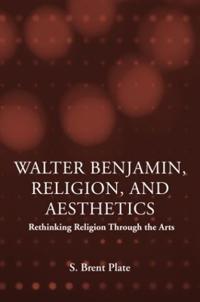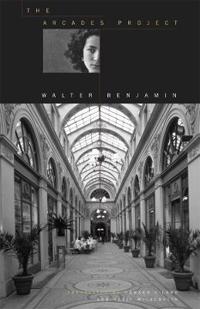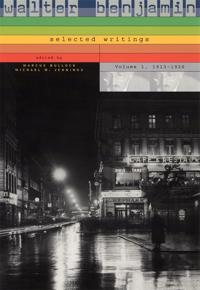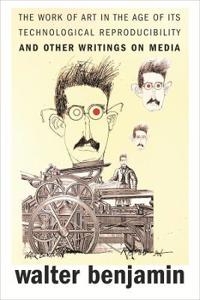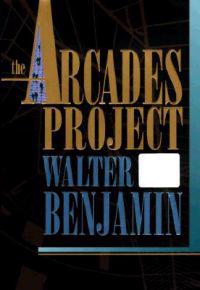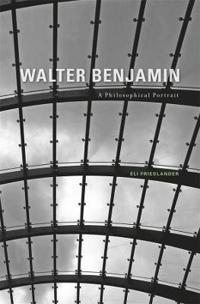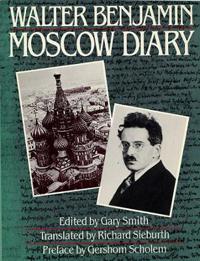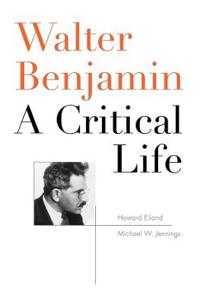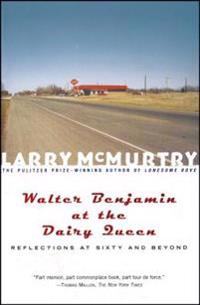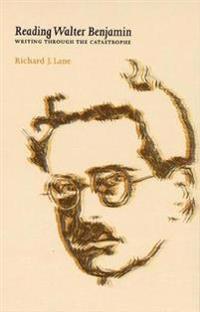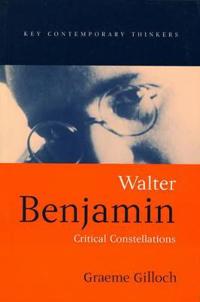Walter Benjamin and Bertolt Brecht: The Story of a Friendship (Inbunden)
avErdmut Wizisla
ISBN: 9780300136951 - UTGIVEN: 200909Revolution and History in Walter Benjamin
ISBN: 9780367077525 - UTGIVEN: 2018-11This book places Benjamin's writing on revolution in the context of his conception of historical knowledge. The fundamental problem that faces any analysis of Benjamin's approach to revolution is that he deploys notions that belong to the domain of individual experience. His theory of modernity with[...]
Walter Benjamin's Philosophy (Häftad)
ISBN: 9780415862202 - UTGIVEN: 2013-10This collection explores, in Adorno's description, 'philosophy directed against philosophy'. The essays cover all aspects of Benjamin's writings, from his early work in the philosophy of art and language, through to the concept of history. The experience of time and the destruction of false continui[...]
Walter Benjamin, Religion and Aesthetics (Storpocket)
avS.Brent Plate
ISBN: 9780415969925 - UTGIVEN: 2004-11Walter Benjamin, Religion, and Aesthetics is an innovative and creative attempt to unsettle and reconceive the key concepts of religious studies through a reading with, and against, Walter Benjamin. Constructing what he calls an "allegorical aesthetics," Plate sifts through Benjamin's writings showi[...]
Mechanical and Electrical Equipment for Buildings, 11th Edition (Inbunden)
avWalter T. Grondzik, Alison G. Kwok, Benjamin Stein, Reyn
ISBN: 9780470195659 - UTGIVEN: 2009-11-30The most widely-used text on the design of environmental control systems in buildings for students and practicing professionals, "Mechanical and Electrical Equipment for Buildings" has for generations prepared students of architecture, architectural engineering, and construction management what they[...]
Walter Benjamin: An Aesthetic of Redemption (Övrig)
avRichard Wolin
ISBN: 9780520084001 - UTGIVEN: 1994-03-11Few twentieth-century thinkers have proven as influential as Walter Benjamin, the German-Jewish philosopher and cultural and literary critic. Richard Wolin's book remains among the clearest and most insightful introductions to Benjamin's writings, offering a philosophically rich exposition of his co[...]
Walter Benjamin's Other History: Of Stones, Animals, Human Beings and Angels (Övrig)
avBeatrice Hanssen
ISBN: 9780520226845 - UTGIVEN: 2000-11-24Long considered to be an impenetrable, hermetic treatise, Walter Benjamin's The Origin of German Tragic Drama has rarely received the attention it deserves as a key text, central to a full understanding of his work. In this critically acclaimed study, distinguished Benjamin scholar Beatrice Hanssen [...]
Cinema and Experience: Siegfried Kracauer, Walter Benjamin, and Theodor W. Adorno (Övrig)
avMiriam Bratu Hansen
ISBN: 9780520265592 - UTGIVEN: 2011-10-04Siegfried Kracauer, Walter Benjamin, and Theodor W. Adorno - affiliated through friendship, professional ties, and argument - developed an astute philosophical critique of modernity in which technological media played a key role. This book explores in depth their reflections on cinema and photograph[...]
The Cambridge Companion to Walter Benjamin (Häftad)
ISBN: 9780521797245 - UTGIVEN: 2004-03This Companion offers a comprehensive introduction to the thought of the highly influential 20th century critic and theorist Walter Benjamin.[...]
The Arcades Project (Häftad)
avWalter Benjamin
ISBN: 9780674008021 - UTGIVEN: 200203To great writers, Walter Benjamin once wrote, "finished works weigh lighter than those fragments on which they labour their entire lives." Conceived in Paris in 1927 and still in progress when Benjamin fled the Occupation in 1940, "The Arcades Project" (in German, Das Passagen-Werk) is a monumental [...]
Walter Benjamin (Pocket)
avMarcus Bullock, Michael W. Jennings, Marcus Bullock
ISBN: 9780674013551 - UTGIVEN: 200405Even as a young man Benjamin possessed astonishing intellectual range and depth. His topics here include poetry and fiction, drama, philosophy, history, religion, love, violence, morality, mythology, painting, and much more. He is as compelling and insightful when musing on riddles or children's boo[...]
Berlin Childhood Around 1900 (Häftad)
avWalter Benjamin
ISBN: 9780674022225 - UTGIVEN: 200605Begun in Poveromo, Italy, in 1932, and extensively revised in 1938, "Berlin Childhood around 1900" remained unpublished during Walter Benjamin's lifetime, one of his 'large-scale defeats'. Now translated into English for the first time in book form, on the basis of the recently discovered 'final ver[...]
Walter Benjamin (Pocket)
ISBN: 9780674022294 - UTGIVEN: 2006-10"Every line we succeed in publishing today...is a victory wrested from the powers of darkness." So wrote Walter Benjamin in January 1940. Not long afterward, he himself would fall prey to those powers, a victim of suicide following a failed attempt to flee the Nazis. However insistently the idea of [...]
The Writer of Modern Life (Häftad)
avWalter Benjamin
ISBN: 9780674022874 - UTGIVEN: 200611Walter Benjamin's essays on the great French lyric poet, Charles Baudelaire revolutionized not just the way we think about Baudelaire, but our understanding of modernity and modernism as well. In these essays, Benjamin challenges the image of Baudelaire as late-Romantic dreamer, and evokes instead t[...]
The Work of Art in the Age of Its Technological Reproducibility, and Other Writings on Media (Häftad)
avWalter Benjamin
ISBN: 9780674024458 - UTGIVEN: 2008-06Benjamin's famous "Work of Art" essay sets out his boldest thoughts - on media and on culture in general - in their most realized form, while retaining an edge that gets under the skin of everyone who reads it. In this essay the visual arts of the machine age morph into literature and theory and the[...]
The Arcades Project (Inbunden)
avWalter Benjamin
ISBN: 9780674043268 - UTGIVEN: 199911To great writers, Walter Benjamin once wrote, "finished works weigh lighter than those fragments on which they labour their entire lives." Conceived in Paris in 1927 and still in progress when Benjamin fled the Occupation in 1940, "The Arcades Project" (in German, Das Passagen-Werk) is a monumental [...]
Walter Benjamin (Inbunden)
ISBN: 9780674051867 - UTGIVEN: 2014-01Walter Benjamin is one of the twentieth century's most important intellectuals, and also one of its most elusive. His writings--mosaics incorporating philosophy, literary criticism, Marxist analysis, and a syncretistic theology--defy simple categorization. And his mobile, often improvised existence [...]
Walter Benjamin (Inbunden)
avEli Friedlander
ISBN: 9780674061699 - UTGIVEN: 201201Walter Benjamin is often viewed as a cultural critic who produced a vast array of brilliant and idiosyncratic pieces of writing with little more to unify them than the feeling that they all bear the stamp of his "unclassifiable" genius. Eli Friedlander argues that Walter Benjamin's corpus of writing[...]
Moscow Diary (Häftad)
avWalter Benjamin
ISBN: 9780674587441 - UTGIVEN: 1986-07The life of the German-Jewish literary critic and philosopher Walter Benjamin (1892-1940) is a veritable allegory of the life of letters in the twentieth century. Benjamin's intellectual odyssey culminated in his death by suicide on the Franco-Spanish border, pursued by the Nazis, but long before he[...]
Walter Benjamin at the Dairy Queen
ISBN: 9780684870199 - UTGIVEN: 2001-08In a lucid, brilliant work of nonfiction -- as close to an autobiography as his readers are likely to get -- Larry McMurtry has written a family portrait that also serves as a larger portrait of Texas itself, as it was and as it has become. Using as a springboard an essay by the German literary cri[...]
Illuminations (Häftad)
avWalter Benjamin
ISBN: 9780712665759 - UTGIVEN: 199901This text contains two of Walter Benjamin's essays, "The Work of Art in the Age of Mechanical Reproduction", and "Theses on the Philosophy of History", as well as others on the art of translation, Kafka, storytelling, Baudelaire, Brecht's epic theatre, Proust, and book collecting.[...]
Reading Walter Benjamin
ISBN: 9780719064371 - UTGIVEN: 2005-07'Reading Walter Benjamin' explores the persistence of absolute in Benjamin's work by sketching-out the relationship between philosphy and theology apparent in his diverse writings, from the early youth-movement essays to the later books, essays and fragments. The book examines Benjamin from two mai[...]
Walter Benjamin: Critical Constellations (Häftad)
avGraeme Gilloch
ISBN: 9780745610085 - UTGIVEN: 2002-02The works of Walter Benjamin (1892-1940) are widely acclaimed as being among the most original and provocative writings of twentieth-century critical thought, and have become required reading for scholars and students in a range of academic disciplines. This book provides a lucid introduction to Ben[...]
Myth and Metropolis: Walter Benjamin and the City (Häftad)
avGraeme Gilloch
ISBN: 9780745620107 - UTGIVEN: 1997-10-31Walter Benjamin is now widely recognized as one of the most original and perceptive thinkers of the twentieth century. This book is a study of Benjamin's lifelong fascination with the city and forms of metropolitan experience.[...]



